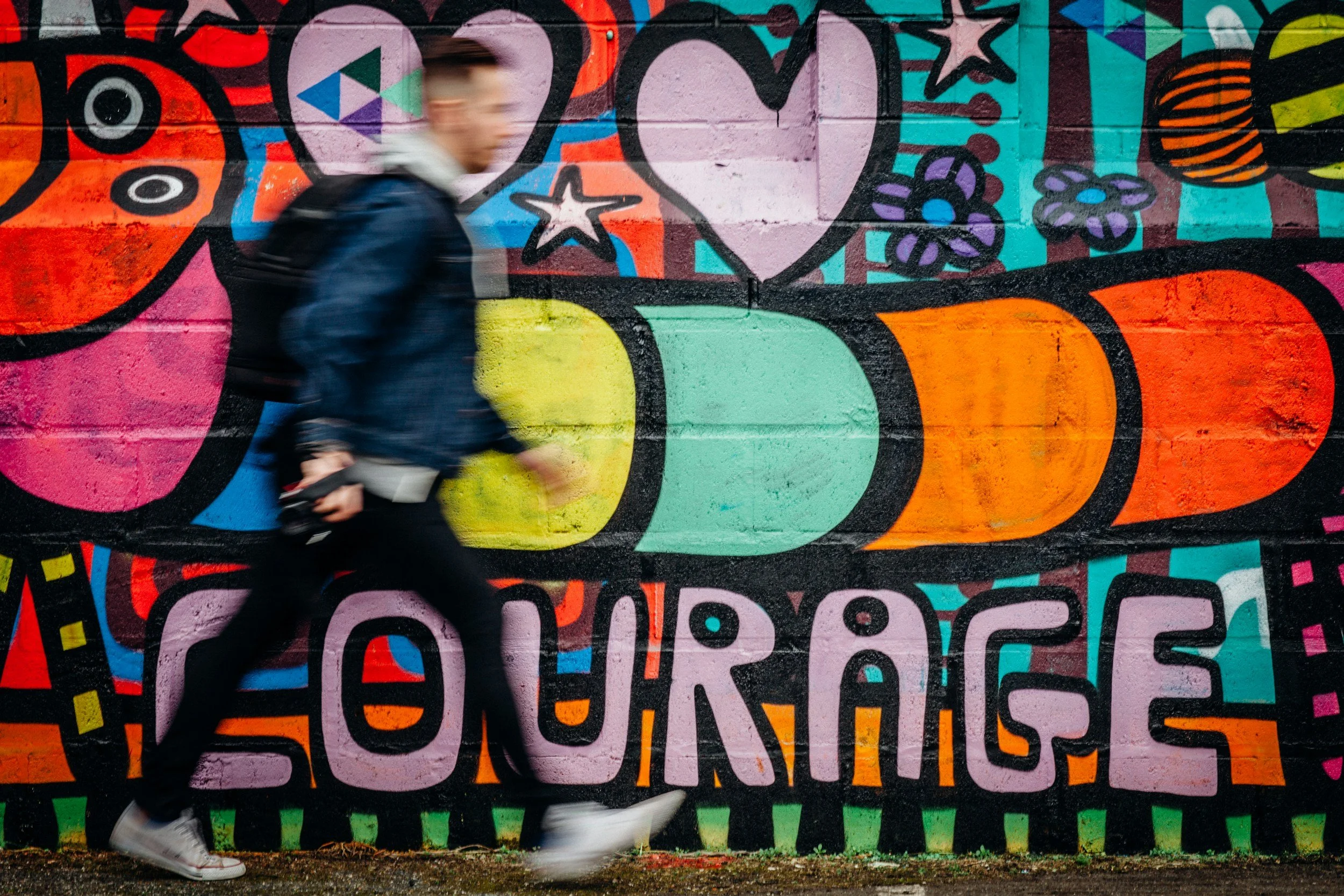
Welcome to my Blog
Thank you for stopping by. This space is where I share research, reflections, and practical tools drawn from my experience as a marriage and family therapist with an international practice.
I write about what happens to desire, attachment, and meaning once the early myths stop working.
Are you a couple looking for clarity? A professional curious about the science of relationships? Or simply someone interested in how love and resilience work? I’m glad you’ve found your way here. I can help with that. I’m accepting new clients, and this blog is for the benefit of all my gentle readers.
Each post is written with one goal in mind: to help you better understand yourself, your partner, and the hidden dynamics that shape human connection.
Grab a coffee (or a notebook), explore what speaks to you, and take what’s useful back into your life and relationships.
And if a post sparks a question, or makes you realize you could use more support, I’d love to hear from you. Let’s explore the scope of work you’d like to do together.
Be Well, Stay Kind, and Godspeed.
~Daniel
P.S.
Feel free to explore the categories below to find past blog posts on the topics that matter most to you. If you’re curious about attachment, navigating conflict, or strengthening intimacy, these archives are a great way to dive deeper into the research and insights that I’ve been sharing for years.
- Attachment Issues
- Coronavirus
- Couples Therapy
- Extramarital Affairs
- Family Life and Parenting
- How to Fight Fair
- Inlaws and Extended Families
- Intercultural Relationships
- Marriage and Mental Health
- Married Life & Intimate Relationships
- Neurodiverse Couples
- Separation & Divorce
- Signs of Trouble
- Social Media and Relationships
- What Happy Couples Know
Why Passion Fades in Marriage: The Ancient Marriage Rule Modern Couples Forgot
Modern marriage operates on a simple assumption: intimacy should always be available.
If two people love each other, live together, and share their lives, why would affection or physical closeness ever need to pause?
And yet many long-term couples eventually discover a problem hiding inside this assumption.
Constant availability dulls desire.
Couples rarely lose attraction because they stop loving each other. They lose attraction because familiarity becomes total. The person who once felt mysterious eventually becomes the person who knows where the spare batteries are kept.
In my work with couples, I often describe what sustains desire in long relationships as erotic rhythm—the structured alternation between closeness and distance that prevents intimacy from dissolving into routine.
Curiously, an ancient religious system anticipated this problem long before modern psychology had language for it.
Traditional Jewish law quietly built distance directly into marriage itself.
The Emotional Cost of Being a Power Couple
There is a particular kind of marriage that receives a great deal of admiration from other people.
Friends admire their careers. Colleagues admire their apartment. Dinner guests admire the way they seem to glide through life with impressive competence. They travel well. They host beautifully. They appear to know exactly what they are doing.
The phrase people use is power couple.
It sounds flattering. It sounds modern. It suggests two impressive people who have figured out not only their careers but also their lives.
Everyone assumes the relationship must be exceptional.
Sometimes that assumption is correct.
But therapists who work with highly accomplished couples see another pattern often enough to mention it out loud:
Two very successful people can build an extraordinary life together while slowly becoming less emotionally known to one another.
Reframing Depression as Strength: The 20-Minute Psychological Intervention That Boosts Goal Achievement by 50%
There is the biological fact of depression.
And then there is the story we tell about what it means.
For decades, we have treated depression as an illness — correctly. Neurochemistry matters. Sleep architecture matters. Hormones matter. Therapy and medication save lives.
But there is a second injury that often lingers after the symptoms lift: the quiet belief that having been depressed reveals something defective about one’s character.
Weak.
Unreliable.
Not built for the long haul.
A new set of studies published in Personality and Social Psychology Bulletin tests a simple but destabilizing alternative:
What if surviving depression is not evidence of weakness — but evidence of strength?
And what if changing that interpretation changes behavior?
Admiration Is Not a Feeling: The Climate That Sustains Long-Term Marriage
Couples do not deteriorate first at the level of behavior.
They deteriorate at the level of appraisal.
By the time communication breaks down, the downgrade has already occurred.
Contempt is the symptom.
The disease is reduction.
The First Fracture Is Perceptual
We have exquisite models for regulation.
We have attachment theory.
We have conflict research.
We can predict divorce from a curled lip.
John Gottman showed us that contempt predicts relational collapse with uncomfortable accuracy.
But contempt does not appear spontaneously.
It emerges after something quieter.
The Discipline of Admiration: Why Long-Term Marriages Collapse Without It
Modern marriage does not usually explode.
It erodes.
The erosion begins in perception.
The partner who once felt singular becomes familiar.
The familiar becomes predictable.
The predictable becomes administratively useful.
Useful is not the same as beloved.
Beloved is not the same as admired.
We have constructed an entire therapeutic language around injury — attachment wounds, trauma narratives, emotional attunement failures. We are fluent in rupture.
We are less fluent in reverence.
Here is the claim, without hedging:
Where admiration collapses, contempt organizes.
Not dramatically.
Structurally.
Why Emotionally Intelligent Couples Are Happier (Hint: It’s Not the Fancy Stuff)
There is a modern fantasy about good relationships.
That they are built on insight.
That they run on communication skills.
That emotionally intelligent couples glide through conflict using nuance, reflection, and well-timed emotional disclosures.
This fantasy flatters us.
It is also mostly wrong.
According to new research published in the Journal of Social and Personal Relationships, emotionally intelligent couples are happier largely because they do one thing well, repeatedly, without much drama:
They make each other feel valued.
Not impressed.
Not managed.
Not therapeutically “held.”
Valued.
Everything else turns out to be secondary.
Sex Didn’t Reduce Your Stress. It Just Rented You the Evening.
We have been telling ourselves a socially approved lie.
That sex is restorative.That intimacy “takes the edge off.”That if a relationship feels tense, brittle, or quietly hostile, sex will smooth it over like a warm towel and a glass of water.
This belief is popular.It is also incorrect.
A large daily-diary study of newlywed couples found that sex does lower stress—on the day it happens. Oxytocin rises. Endogenous opioids show up, do their brief janitorial work, and the nervous system calms down for a few hours.
And then the shift ends.
By the next day, stress returns fully caffeinated and unimpressed.
No emotional carryover.No lingering calm.No evidence that last night’s sex made today’s life more tolerable.
Sex helped—but only until midnight.
Courage Is Commonly Misunderstood
Courage is commonly misunderstood.
And we’ve turned it into a personality aesthetic.
Confident people are called courageous.
Loud people are called brave.
People who feel certain are treated as if they’ve accomplished something moral.
None of this has much to do with courage.
Courage does not mean the absence of fear.
It means functioning while fear is present. It means staying internally organized when the nervous system would very much prefer flight, fight, or a dramatic monologue about values.
From a psychological perspective, courage is not a trait you “have.” It is a capacity you can lose.
Why Communication Skills Don’t Work Without Epistemic Safety
Many couples arrive in therapy fluent in communication skills.
They use “I” statements.
They reflect feelings.
They paraphrase accurately.
They take turns.
And nothing improves.
This is often interpreted as resistance, avoidance, or lack of motivation.
More often, it’s something quieter:
The relationship is not epistemically safe.
Epistemic Safety: What It Is and Why It Matters in Relationships
Epistemic safety refers to the degree to which a partner’s perceptions, interpretations, and lived experience are treated as credible within a relationship.
In epistemically safe relationships, individuals do not have to repeatedly justify their reality in order for it to be taken seriously. Their emotional and perceptual experience is treated as plausible by default, even when there is disagreement.
In my clinical work, I use the term epistemic safety to describe this baseline condition of relational credibility.
Epistemic safety is not agreement.
It is credibility without coercion.
A partner can disagree without destabilizing the other person’s sense of reality.
When epistemic safety is present, conflict remains relational.
When it is absent, communication becomes adversarial.
Your 10 Best Relationship Skills (Which are Annoying, Because None of Them are Particularly Romantic)
Most relationships don’t fail from lack of love. They fail from lack of usable skills under stress.
People prefer romantic explanations for relational collapse: lost chemistry, mismatched attachment styles, insufficient gratitude rituals performed near candles.
The truth is less poetic and more operational.
Relationships fail when two reasonably competent adults hit pressure—fatigue, parenting, illness, ambition, neurodivergence, grief—and discover they were never taught how to run a relationship once goodwill is no longer doing the heavy lifting.
Love gets you started.
Skill determines whether the relationship remains livable.
Here are the ten skills that actually predict long-term stability in your dyad.
Why Meaningful Stories Help Couples Tolerate Reality
In couples therapy, people often arrive with a reasonable complaint delivered in an unreasonable tone:
“We have everything we’re supposed to have. Why does this still feel hard?”
They are not asking for joy.
They are asking for coherence.
This is where the research on eudaimonic media becomes unexpectedly clinical.
A 2021 study by Ott, Tan, and Slater examined what happens when people look back—not immediately, not in a lab, but years later—on films they chose to watch.
Not clips. Not assignments. Real movies, watched voluntarily, remembered imperfectly, and metabolized over time.
What they found aligns uncomfortably well with what therapists already know.
Pleasure doesn’t teach tolerance.












